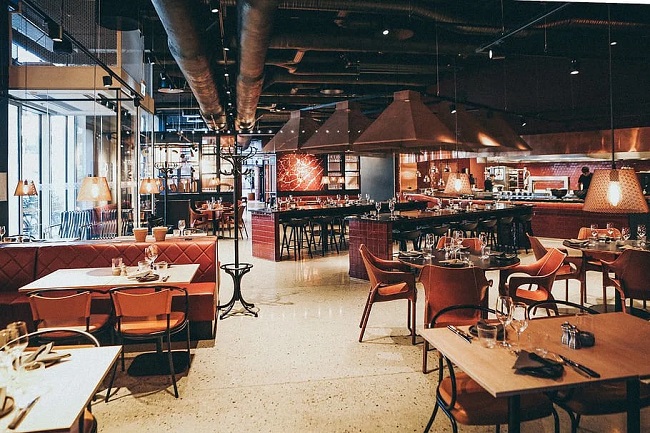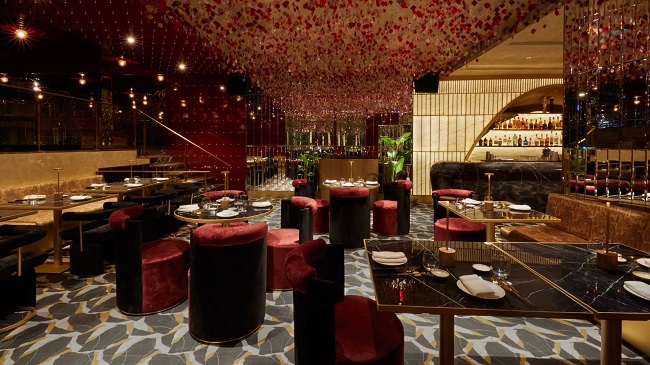Restaurant success is no small feat – with notoriously thin profit margins and intense competition, efficiency is imperative yet difficult to achieve across a dispersed enterprise.
Multiple locations, each tracking orders, inventory, staffing, and more through disjointed spreadsheets and paper processes, make optimizing operations near impossible.
Yet streamlining these complex systems from end-to-end holds game-changing potential for minimizing costs, accelerating service, and driving revenue.
Enterprise resource planning (ERP) software now makes it possible for restaurants to integrate and optimize functions into a centralized digital infrastructure.
By interconnecting once-siloed operations from headquarters to individual stores and implementing Enterprise Resource Planning software, supply chain to customer-facing roles, ERP systems give restaurants unprecedented visibility into and control over organization-wide data and processes.

Leveraging the analytics, reporting, and workflow standardization capabilities of a restaurant-tuned ERP platform paves the pathway to higher efficiency, lower waste, and informed strategies that translate to the bottom line.
Equipped with real-time insights and enterprise-wide transparency, managers systemically identify ways to squeeze more efficiency from budgets, supply chains, and operations.
Implementation undoubtedly requires upfront investment – no small consideration for restaurants constantly counting every dollar. However, optimized processes and data analysis pays compounding dividends over months and years.
The operational excellence and extended reach enabled by ERP adoption provide restaurants with the infrastructure for scalable, sustainable business success.
Standardizing Processes
One major benefit of ERP systems is standardizing business processes company-wide. They incorporate best practices that simplify everything from inventory and ordering to staff scheduling and payroll.
Standardized processes reduce mistakes, limit duplication of efforts, and promote consistency across locations. With workflows optimized, restaurants operate more efficiently.
Access to Real-Time Data and Reporting
ERP systems consolidate data from all operations into a central database accessible through analytics and reporting Tools. From inventory levels to sales figures and labor costs, managers gain real-time visibility into KPIs.
This enables data-driven decision-making to keep costs down, reduce waste, and improve margins. Detailed reports and analytics also provide insights to adjust strategies to drive revenue growth.
Improved Communication And Collaboration
With all teams interacting through a centralized system, ERP platforms break down silos between functional areas. Supply chain coordinators connect with store managers on inventory requirements.
Accounting accesses up-to-date transactions from each location. With roles and tasks clarified, different departments collaborate more effectively toward shared business objectives.

Informed Customer Experiences
ERP software also leads to better customer experiences. With inventory synchronized across the supply chain, restaurants avoid running out of Popular menu items. Cost control from ERP systems allows restaurants to optimize pricing and promotions to deliver value.
Staff scheduling prevents under- and over-staffing so customers receive prompt and efficient service. By running operations smoothly, restaurants create consistent and positive customer experiences that drive repeat business.
ERP data also provides customer insights – with analysts able to track preferences tied to customer, demographic, seasonal, and other trends, then tailor menus, promotions, staff plans, and inventory orders to match demand.
With demand informed through ERP analytics and operations optimized company-wide, restaurants deliver personalized experiences that keep customers coming back.
Transitioning from disjointed systems and processes to streamlined ERP software delivers Game-changing value for restaurant Businesses.
Read Also:
With costs contained, waste minimized, real-time data informing smart strategies, and teams collaborating more efficiently, restaurants position themselves for profitability and lasting success in a highly competitive industry.
When leveraged to its full potential, ERP Software gives restaurants an operating infrastructure for scalable, sustainable growth for years to come. Implementing these systems requires an initial investment but pays long-term dividends across the organization.



















